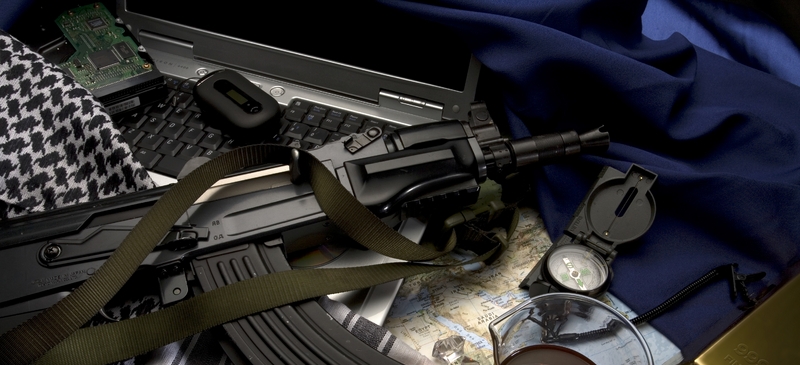
Can the EU deal with its unruly neighbours?
What future security and defence challenges should the EU prepare for?
Europe should be worried about the spread of weapons-of-mass-destruction (WMD), failing states and terrorism. In fact it already is. The European security strategy (ESS), a document agreed by EU governments in 2003, outlines five key threats to European security: terrorism; proliferation of WMD; regional conflicts; state failure; and organised crime.
Understandably, the ESS does not predict a major inter-state war involving European governments, adding, “large-scale aggression against any member state is now improbable”. The ESS also says that the EU cannot afford to be myopic – what happens in North Korea and south Asia is of direct relevance to the EU. And it rightly points out the explicit link between EU security and the economic development of poorer countries.
But the EU cannot cope with all the potential threats facing the world, nor should it plan to. The US, for example, does not plan to intervene in every conflict around the world, and even if it did it would not have the resources to act. As Frederick the Great told his generals: “To defend everything is to defend nothing.” If the EU is to be effective in the future, it will need a clear sense of its security priorities and what it is prepared to do.
It is much easier to predict what the EU will not do. For example, the EU will hardly fight wars in east Asia. If the US fought a war in east Asia, doubtless it would get political support from European governments, but it might not get much useful military help. If the EU sends personnel to east or south-east Asia, they will be peacekeepers, police and/or civilians – not fighters – as in the current EU monitoring mission in Aceh.
The EU should be most concerned about future developments in its neighbourhood with Russia and the Middle East. By 2020, sub-Saharan Africa will be increasingly important, too, not only for humanitarian reasons, but also because of European energy requirements and the threat from terrorism. As the ESS puts it, “even in an era of globalisation, geography is still important”.
The enlargement of the EU brings it closer to the arc of instability that runs around its eastern, south-eastern and southern flanks. Romania and Bulgaria are joining the EU in 2007, while Turkey and other countries of the western Balkans may enter in the coming decades. The EU will therefore have many weak and malfunctioning states on its borders. It is bound to become more involved in countries such as Belarus, Georgia and Algeria. Across the Atlantic US priorities will remain focused on countries such as Iraq, Iran, Afghanistan and North Korea, and potential conflicts such as China-Taiwan and India-Pakistan. Washington will be reluctant to become too involved in conflicts around the EU’s eastern and southern flanks.
The EU will need to develop a more effective set of policies for stabilising North Africa, the Balkans and the countries that lie between it and Russia. Many of these policies will involve trade, aid and political dialogue. But EU strategy towards its near-abroad will also have to include a military component. Europeans should not expect the US to put out fires in their own backyard. After all, the principal rationale for the Anglo-French initiative at St Malo in 1998 – which begat the EU’s defence policy – was to improve on the EU’s poor performance in coping with the Balkan crises of the 1990s.
The EU’s efforts to tackle conflicts in its neighbourhood may require more than ‘mere’ peacekeeping, as it has been doing in Bosnia and the Democratic Republic of Congo. For example, if the delicate situations in Kosovo or Algeria turned into a civil war, the EU might have to intervene with forces that could separate the warring factions. In such situations, British and French soldiers might be fighting alongside those from Germany, Italy and Spain, but probably not with American troops.
To some these scenarios sound outlandish. But who would have predicted a year ago that European soldiers would police the Israeli-Lebanese border? Although it is not an EU mission, the UN operation in Lebanon is European-led, with most of the soldiers coming from EU member states. The Lebanon operation fits in with a strategic trend – European governments will probably have to carry out many more autonomous military operations in the future, especially in their turbulent neighbourhood.
Daniel Keohane was a senior research fellow at the Centre for European Reform (2001-2006)
